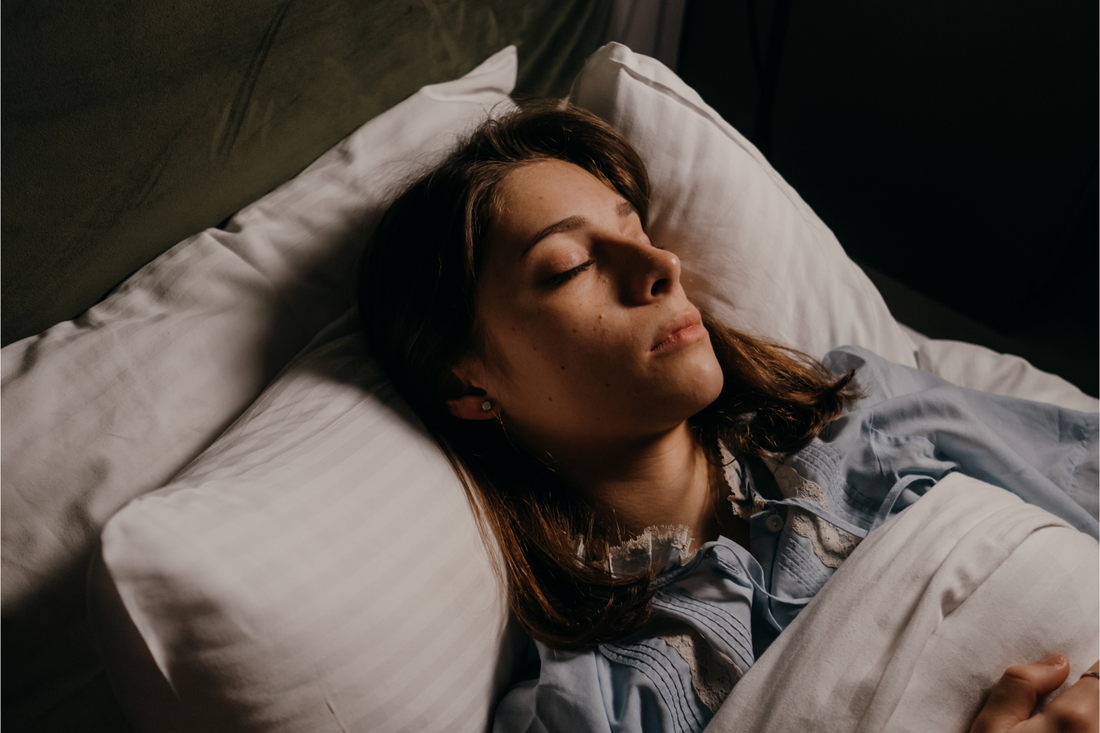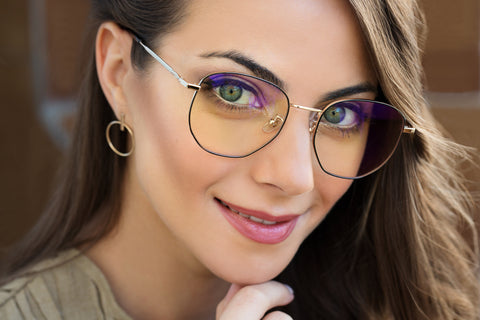
Do Anti Blue Light Glasses Help You Sleep Better?
Sleep is necessary for us to stay alive. It is a condition when our body is renewed and refilled with energy. During sleep, the level of energy we expend decreases, the muscles relax and renew, and our brain has the opportunity to process the memories we have accumulated and things we have learned during the day. There is no better way to end a hard day than by sleeping. Sleep and immunity always go together, because lack of sleep reduces immunity. Our immune system protects us from colds and flu, but if it is weakened as a result of insufficient sleep, we get sick more often from seasonal flu and colds.
Why is sleeping very important for a healthy life?
Having trouble sleeping will have a negative effect on your mood. If you sleep less than five hours a day, you will experience stress, anger, sadness, and mental exhaustion. If this lack of sleep persists for a long time, symptoms of depression appear. The most common form of sleep disorder, insomnia, is directly related to depression. People suffering from insomnia are at five-times higher risk of developing depression.
Sleep disorders and chronic insomnia increase the risk of heart disease, heart attack, irregular heartbeat, and high blood pressure. Insufficient sleep leads to the production of higher amounts of cortisol, the stress hormone. On the other hand, sleep contributes to the relaxation of the muscles of the body, as well as relaxation and reduction of activity in the brain, which leads to less stress. Sleep gives us physical and mental rest, and thanks to that rest we can function without problems every day. Although you may not notice it, lack of good sleep has a very negative effect on the overall health and normal functioning of people. In addition, here are some negative consequences of not getting enough sleep.
Inability to learn and think. Lack of sleep negatively affects learning and thinking, because it reduces concentration, sobriety, and the ability to solve problems. Memories are "stored" during the night, so if you do not get enough sleep, you will not be able to remember the things you learned during the day.
Obesity. If you do not getting enough sleep, do not be surprised if diet and physical activity do not help you improve your shape. Lack of sleep decreases leptin levels1, and increases appetite and the feeling of hunger, thus causing weight gain.
Carelessness and accidents. Insufficient sleep reduces reaction time, so very often it is the cause of traffic accidents2. Insufficient sleep leads to a person reacting slowly on the road.
Skin aging. When the body does not get enough rest and sleep, it produces a larger amount of the stress hormone, cortisol. In large quantities, cortisol can break down collagen, which gives the skin elasticity and tenderness. Most people who have trouble sleeping also have flaky skin, swollen eyes, and dark circles around the eyes, especially if they have chronic poor sleep quality3.
How does blue light impact sleep?
Many people spend their moments of the day in bed with their favorite smart device. Digital devices have become so involved in our daily lives that it is difficult to go to the toilet or even to bed without them. We used to fall asleep watching TV, but now this seems like part of the past, because most of us fall asleep with our phone in our hands.
However, recent research shows that smartphones actually have a detrimental effect on drowsiness, your mental health, and even the quality of your sleep. Phones emit blue light, which has a bad effect, especially when you are exposed to it at bedtime. If you have to look at something on your phone before going to sleep, do it with light in the room, not in the dark, because that will reduce the impact of blue light. Avoiding blue light can improve sleep quality, while increased exposure to such light can be harmful to your eyes.
The human biological clock is "adjusted" to follow the changes of day and night. Therefore, if we stay awake at night "staring" at artificial light, it will weaken the production of melatonin and disrupt the work of our biological clock, and thus encourage the development of several disorders and diseases. In addition to frequent headaches and insomnia, it has been shown to impair vision, weaken immunity, memory, and concentration, and increase the risk of heart disease.
Blue light affects the secretion of hormones in the brain, both positively and negatively. An example of a negative impact is reduced melatonin production4. According to one study5, if you’re exposed to blue light before you go to sleep, your body doesn’t release enough melatonin, and you will have trouble falling asleep.
Exposure to blue light emitted by digital devices reduces the secretion of melatonin, which equally affects the quality and duration of sleep. Also, using your phone right before bedtime can cause sleep disruption.
Blue light blocking glasses

If you like reading your favorite book online and using your tablet for hours, for example, anti blue light glasses for computer can be a perfect solution for maintaining good eye health. This is especially important if you like spending hours on your device right before bedtime. Blue light blocking glasses will protect you from blue light radiation and improve your quality of sleep.
Some of our best blue light blocking glasses for Canada are our Cateyes, Aura, Amber, Copper, Granite, Onyx, Dynamic, and Era lines. All these glasses are of high quality, very durable, and don’t break easily.
To sum up
Wearing anti blue light glasses benefits everyone: they are good for both kids and adults. Spending hours in front of the TV, tablet, phone, and other digital devices will not only harm your eyes but also your health and quality of sleep. And without sleep, there is no quality life. That’s why you might consider buying something worthwhile.
1. Beccuti, G., & Pannain, S. (2011). Sleep and obesity. Current opinion in clinical nutrition and metabolic care, 14(4), 402–412. https://doi.org/10.1097/MCO.0b013e3283479109
2. Swanson LM, Arnedt JT, Rosekind MR, Belenky G, Balkin TJ, Drake C. Sleep disorders and work performance: findings from the 2008 National Sleep Foundation Sleep in America poll. J Sleep Res. 2011 Sep;20(3):487-94. doi: 10.1111/j.1365-2869.2010.00890.x. Epub 2010 Sep 30. PMID: 20887396.
3. Oyetakin-White P, Suggs A, Koo B, Matsui MS, Yarosh D, Cooper KD, Baron ED. Does poor sleep quality affect skin ageing? Clin Exp Dermatol. 2015 Jan;40(1):17-22. doi: 10.1111/ced.12455. Epub 2014 Sep 30. PMID: 25266053.
4. Steven W. Lockley, George C. Brainard, Charles A. Czeisler, High Sensitivity of the Human Circadian Melatonin Rhythm to Resetting by Short Wavelength Light, The Journal of Clinical Endocrinology & Metabolism, Volume 88, Issue 9, 1 September 2003, Pages 4502–4505. https://doi.org/10.1210/jc.2003-030570
5. Chang AM, Aeschbach D, Duffy JF, Czeisler CA. Evening use of light-emitting eReaders negatively affects sleep, circadian timing, and next-morning alertness. Proc Natl Acad Sci U S A. 2015 Jan 27;112(4):1232-7. doi: 10.1073/pnas.1418490112. Epub 2014 Dec 22. PMID: 25535358; PMCID: PMC4313820.
